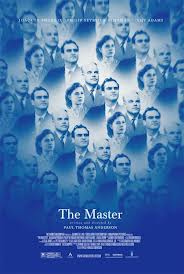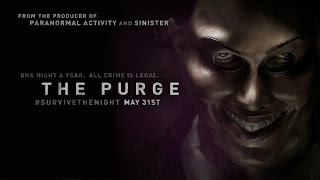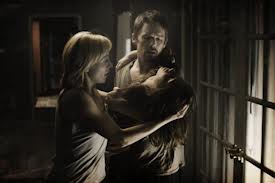
With such a sparse filmography from writer/director, Paul Thomas Anderson (There Will Be Blood), his films are not catered to the whims of mass moviegoers. He makes films that interest him. He creates characters and story arcs that may seem ambiguous and non-directional, but the more views given to his films, the better the experience becomes and gives one the full grand picture of the film as a whole. “The Master” defies Anderson’s structure. This is unlike any Anderson film ever made, or even any film in general. And for that, it’s a monumental achievement. “The Master” is destined to both infuriate and enrapture audiences with its slow, meticulous build-up that may seem unfulfilling, but pays off massively in the end. This is not a film made to entertain audiences; this is made for the sake of art and painting a portrait of disturbed, perplexed characters to the lengths of which we’ve never seen. Speaking of characters, it’s the performances from Joaquin Phoenix and Phillip Seymour Hoffman as the film’s leads, which elevates the material that may seem bland and boring to fascinating heights. Anderson’s new bold achievement may not seem accessible to mainstream audiences, or even some film enthusiasts overall, but for those who those who can endure Anderson’s subtle pacing, his undefined, dissonant characters, and his ambiguous meaning can see this as being one of the year’s best films.
As some are confused and wondering if this is a look into the beginnings of Scientology, it’s not entirely about that. While some things may resemble the Church of Scientology, it’s not what the film is about. Instead, we open up with Freddie Quell (Joaquin Phoenix), a tortured, disturbed, alcoholic world-war II veteran, who’s abrasive and unrelenting behavior disconnects him from any society he tries to live in, as he tries to adjust in the real world, which only draws him over the edge of insanity. Soon after, his wondering around the American landscape finds himself in the company of Landcaster Dodd (Phillip Seymour Hoffman), a self-affirmed religious leader of a cult known as, “The Cause,” who inhabits the body and persona of L. Ron Hubbard, but that’s as close as it will be near Scientology. As Freddie seems to find comfort and peace in Dodd’s hands, he becomes the experimental animal for Dodd, as he is subjected to menial tests, which go far beyond comprehension. Soon it’s two dueling forces battling it out as Freddie struggles to deal with Dodd’s innocuous teachings. With Freddie trying to find direction in his life while Dodd manipulating and taming Freddie into his own cause.

As is all of Anderson’s works like the 70’s porn industry in “Boogie Nights,” or the boom in capitalism in “There Will Be Blood,” this is an exploration in not only the influence and dynamics of religion, but as to what effect it can have on people. In “The Master,” people generally fall into two categories: those who truly believe in Dodd’s beliefs and those who can easily see the holes and fallacy in it. Freddie falls directly in the middle - where he can’t decide for himself on what to believe but desperately wants to find a side and stay put. His undetermined behavior and reluctance is the main driving force in Freddie as we experience both his frustrations and and submissiveness and loyalty to Dodd’s authority. To say this film is aimless and wanders is to miss the point - the only story we get is the father-and-son relationship between Dodd and Freddie. It may be more subtle than what we’re used to Anderson’s film-making sensibilities or just not enough to sustain a two-and-half hour film, but this was thoroughly absorbing and mesmerizing from start to finish. Not a single frame is wasted in this superlative work of art.
If anything people can take away from the film, it’s the the performances from both Phoenix and Hoffman, which are to say the least; astounding. Phoenix’s uncompromising determination to bring a character like Freddie come to life is worth alone to witness the film. He commands the screen in every frame, even as he goes toe-to-toe with Hoffman, yet he maintains a sense of unique authority as an actor. His performance is remarkable in that it’s unlike anything one has ever witnessed. He pours all of his energy into this role, even to just physically look the part with his crooked hunches or by molding his appearance. His determination is sealed into this film even when it requires to do something physically impossible, as he bravely without hesitation surrenders his body to physical brutality in destroying a jail cell by throwing himself against everything or going all-out crazy on bystanders around him, it’s inarguable that he gives the one of the best performances of the year. His behavior alone and reactions give the sense that Freddie is mentally ill and requires more than a father figure in his life. And at the opposite end of the spectrum is Hoffman, whose cool and collected manner gives him the chance to absorb the character of Dodd. Hoffman is more than capable of bringing a character like Dodd, who may seem delusional and admirable, a feeling of humanity as he convinces his peers to his ideas and tries to reign in Freddie with his unorthodox techniques. When both appear on screen, it’s acting of the highest degree. Just one scene in particular as Dodd asks Freddie questions that sound random but give the sense of what auditing must feel. As Freddie is interrogated and Dodd is unrelenting with his questions, seeing both perform against each other is gripping and enthralling to watch.

While the supporting cast isn’t particularly developed with characters like Dodd’s son, Val (Jessie Plemons) who all the while charades with Dodd, is detached from his cause and ultimately sees it as a joke, and even Kevin J. O’Conner as a member of the church, who has one scene of any character where he voices his true opinion, only to end up being attacked by Freddie are given less to do and act as noise in the background. Only Amy Adams, who plays Dodd’s wife, Peggy, gives her limited scenes a true depth of character. She acts more of a catalyst behind Dodd than just a supportive wife. Almost shows the true brunt and brains behind the whole operation, whereas Dodd seems to be the image. While these are lightly touched upon, it gives the picture more depth than imagined. One scene in a bathroom where Dodd seems defeated, only with Peggy’s assurance and sexual gestures gives him the motivation.
This almost leads to another point of the role of women around this time period. While Peggy seems to be the dominating force behind Dodd, Freddie is more of a personal of the male cravings for sexual desires. As he sees women as mere sex objects, it gives the viewer in the type of world where Freddie comes from. With flashbacks showing Freddie’s love partner as he leaves for the war, gives a feeling of abandonment. He has no one to care for him. Added to that his aimless sense of direction and purpose - fills his lost void with alcohol and sex. Are women meant to keep men in balance? Are they the real driving force behind a man’s instinct? All of these questions are of great discussion once viewing “The Master.”

Shot in luscious 65mm format, this immediately transports the viewer into the world of the 1950s. The first shot of the bow of the ship showing the endless blue oceans proceeding it, along with Johnny Greenwood’s immensely captivating score, is a feast for the eyes. The wide angle shots of motorcycle riding the in the deserts to the expertly framed statures of Freddie and Dodd are the work of an artist. With newcomer, Mihai Malaimare Jr. (long-time collaborator Robert Elswit out of the picture), the decision to film in 65mm (last time it was filmed in 65 mm, was Kenneth Branagh’s Hamlet in 1996) is an experience quite unforgettable. Anderson wisely takes advantage by never cutting, but letting the camera capture everything in one take and having the viewer within the scene. It’s classic film-making of the order. Forget Hollywood’s newest extravaganza, this is vibrancy and perfectionism truly to be seen to be believed. The digital age still can’t match the finer beauty of film.
Whether Anderson’s newest work is lauded as “audacious” or “painfully dull and unmemorable,” there’s no denying Anderson’s daring ability to experiment and create out of the mold. He’s a filmmaker of higher caliber, and is not one to be working within the confines of mainstream Hollywood. He makes daring films, that whether you can accept them, deserved to be seen regardless, and “The Master” is no exception. It’s a meticulous work of art, blending in themes and ideas never forged unto film, and creating discussions and conversations among its admirers and detractors. It’s fearless, thought-provoking, and best of all, “uncompromising.” The art of film has never felt more alive than watching “The Master,” with performances, especially from Phoenix, soaring higher than the stratosphere, images more alive than any blockbuster, and ideas more intriguing than any film this year. Call this reviewer a believer, but Paul Thomas Anderson is one artist whose work transcends beyond the delusions of grander.
Rating: A by Amritpal Rai



























